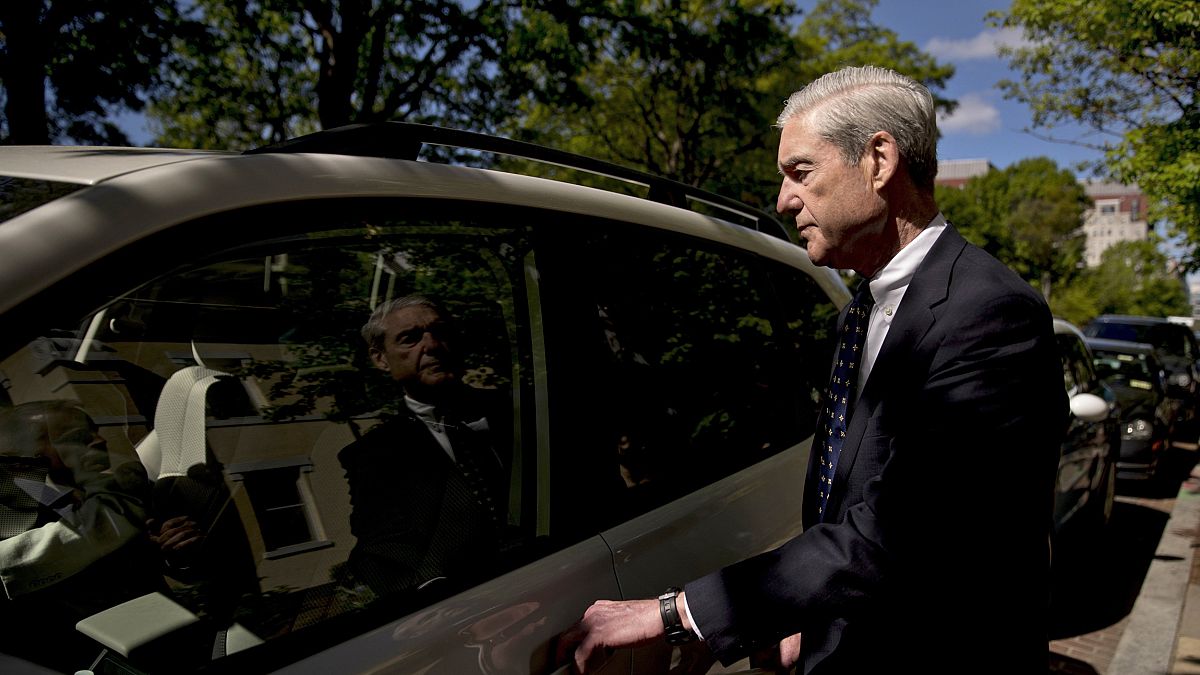"We believe strongly that, but for the OLC memo, the overwhelming weight of professional judgment would come down in favor of prosecution for the conduct outlined in the Mueller Report," the former federal prosecutors said in a statement.
President Donald Trump would have been indicted for obstruction of justice in special counsel Robert Mueller's investigation if he did not hold the nation's highest office, more than 370 former federal prosecutors argued in an open letter posted to Medium on Monday.
The prosecutors — all of whom have served under both Republican and Democratic administrations dating back to President Dwight D. Eisenhower — said that Attorney General William Barr's decision to not charge the president with obstruction "runs counter to logic and our experience."
"Each of us believes that the conduct of President Trump described in Special Counsel Robert Mueller's report would, in the case of any other person not covered by the Office of Legal Counsel policy against indicting a sitting President, result in multiple felony charges for obstruction of justice," they wrote.
They added, "As former federal prosecutors, we recognize that prosecuting obstruction of justice cases is critical because unchecked obstruction — which allows intentional interference with criminal investigations to go unpunished — puts our whole system of justice at risk."
"We believe strongly that, but for the OLC memo, the overwhelming weight of professional judgment would come down in favor of prosecution for the conduct outlined in the Mueller Report," the letter said.
Mueller's report did not say that Trump would have been charged had he not been the president, but it did cite the longstanding opinion from the Justice Department's Office of Legal Counsel that says a sitting president cannot be indicted. Mueller said that his team "accepted OLC's legal conclusion for the purpose of exercising prosecutorial jurisdiction."
The Mueller report, which identified 10 episodes that could be considered potential obstruction of justice, did not come to a conclusion on whether to charge the president. Barr, in a letter to Congress sent before the redacted report was made public, said that he had decided that Trump did not obstruct the probe. Barr said they didn't amount to illegal activityby the president and that he disagreed with some of Mueller's legal theories on whether those episodes amounted to obstruction "as a matter of law."
Mueller's office says it weighed charging Trump with obstruction but didn't in part because "we recognized that a federal criminal accusation against a sitting President would place burdens on the President's capacity to govern and potentially preempt constitutional process for addressing presidential misconduct."
He added, "The president's efforts to influence the investigation were mostly unsuccessful, but that is largely because the persons who surrounded the president declined to carry out orders or accede to his requests."
The list of signees — 379 as of Monday afternoon — includes 29 people who have served in the Justice Department under Trump and more than 100 officials who have served in the DOJ for 20 years or more.
"All of this conduct — trying to control and impede the investigation against the President by leveraging his authority over others — is similar to conduct we have seen charged against other public officials and people in powerful positions," they wrote.
"Of course, there are potential defenses or arguments that could be raised in response to an indictment of the nature we describe here . . . But, to look at these facts and say that a prosecutor could not probably sustain a conviction for obstruction of justice — the standard set out in Principles of Federal Prosecution — runs counter to logic and our experience."
